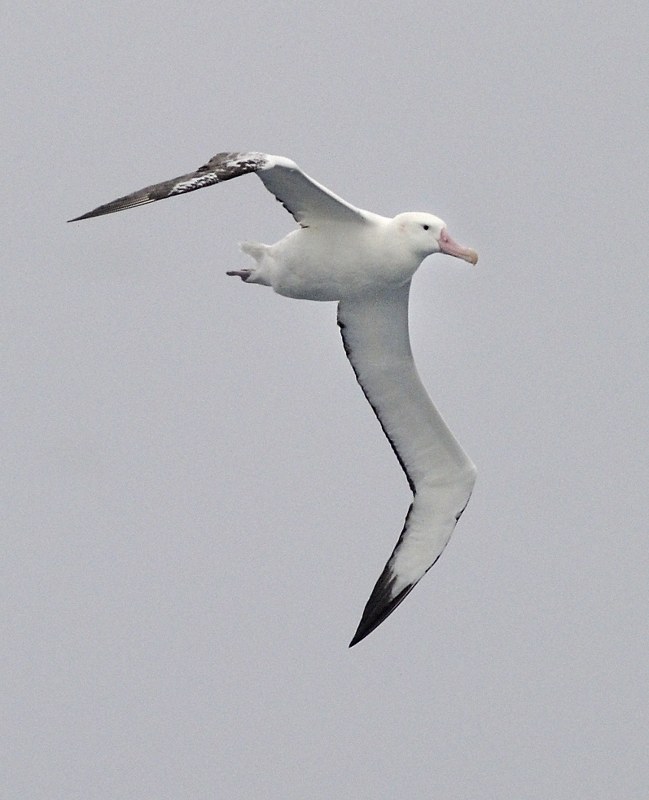 A Wandering Albatross flying near South Georgia (Islas Georgias del Sur*); photograph by Kirk Zufelt
A Wandering Albatross flying near South Georgia (Islas Georgias del Sur*); photograph by Kirk Zufelt
High Pathogenicity Avian Influenza (HPAI) has been detected in Vulnerable Wandering Albatrosses Diomedea exulans on the subantarctic islands of South Georgia (Islas Georgias del Sur*).
Dr Richard Phillips is Head of the British Antarctic Survey’s Higher Predators and Conservation Group and Vice-convenor of ACAP’s Population and Conservation Status Working Group and has been working with albatrosses and petrels in the region for over 20 years.
Expressing concern about the current situation he said: "In terms of albatross species at South Georgia, as far as we are aware it’s just [Wandering Albatrosses] that are dying in large numbers from avian flu. More than 50 adult Wanderers died, although the last of those was a couple of weeks ago so we’re really hoping there won’t be any/many more."
This outbreak, which began with Brown Skuas in October 2023 and has since affected other species including elephant seals, fur seals, Kelp Ggulls and Antarctic Terns, poses significant challenges for conservation efforts.
The eggs of Wandering Albatrosses laid in December last year will begin hatching in March and although there is concern for the chicks, Dr Phillips said the the survival of adults is more pressing.
“…possibly the chicks might not be affected this summer or during the winter (when just visited by their parents) but there could be a new wave of infections at the start of the next austral summer when the summer-breeding species – including skuas – return. Mortality of adults is more serious as their survival is naturally much higher than that of chicks and so their loss has a greater impact on population trends.”
Collaboration between the British Antarctic Survey (BAS), the Government of South Georgia and South Sandwich Islands (GSGSSI), and with DEFRA’s Animal Plant Health Agency (APHA) aims to monitor and mitigate the transmission of HPAI H5N1.
In November 2023, the Agreement’s Intersessional Group on High Pathogenicity Avian Influenza H5N1 released an updated version of ACAP’s Guidelines for working with albatrosses and petrels during the high pathogenicity avian influenza (HPAI) H5N1 panzootic, available at the ACAP website, here.
28 February 2024
*A dispute exists between the Governments of Argentina and the United Kingdom of Great Britain and Northern Ireland concerning sovereignty over the Falkland Islands (Islas Malvinas), South Georgia and the South Sandwich Islands (Islas Georgias del Sur y Islas Sandwich del Sur) and the surrounding maritime areas.

 English
English  Français
Français  Español
Español